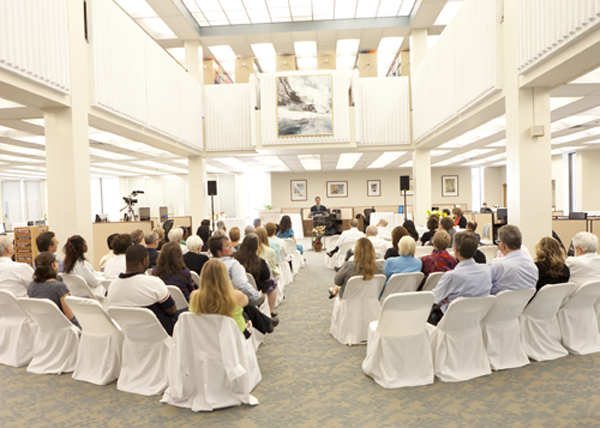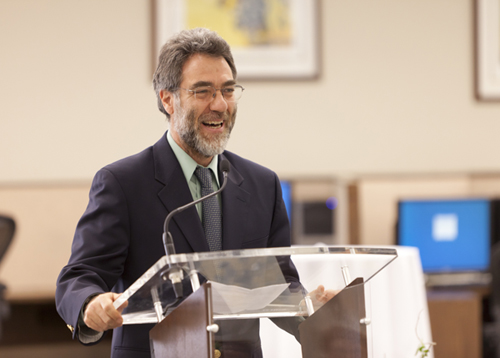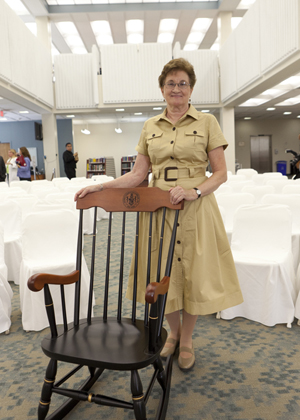The
Faculty and Friends Reception held at the Calder Library on April 26th was a resounding success. Dr. Mary Moore, head of the Department of Health Informatics and Executive Director of the Calder Library, opened the event, saying that the reception came about at the request of the Medical School Council. Faculty had requested more opportunities to talk together and identify possible opportunities for interdisciplinary collaboration. This was the third annual Faculty and Friends Reception. Dr. Moore announced that the theme for the event came the "
Question of the Year" posed by
Academic Medicine, the journal of the AAMC. That question is: What improvements in medical education will lead to better health for individuals and populations?
She introduced Dean Pascal J. Goldschmidt, Senior Vice President for Medical Affairs and Dean of the Miller School of Medicine, who welcomed the group. Dean Goldschmidt highlighted the transition from procedural medicine in the 20th century to keeping people healthy in the 21st century. In this new landscape, Dean Goldschmidt noted, there are two types of doctors, those who use information tools and technologies effectively and those that wander aimlessly in the corridors. He acknowledged the Library, Dr. Moore, and Jackie Libretto for implementation of the University's electronic health record, UChart.

Dr. Moore then introduced the keynote speaker,
Dr. William Hersh. Dr. Hersh is chairman of the Department of Informatics and Clinical Epidemiology at the Oregon Health and Sciences University and a widely acknowledge expert in biomedical and health informatics. He continued the theme by noting the importance of making our health care system more aimed at prevention, which can and should be implemented with the use of information. He also highlighted the role of the electronic health record (EHR) in the new face of medicine. Today's medical students will need education on the best use of information, including how to operate an EHR and how to access and critically consume knowledge. The emerging c
linical informatics subspecialty is evidence of this growing importance and would serve as an opportunity for professional recognition of the importance of informatics in the health care field.

The program concluded with formal recognition of former Director of Library Operations Suzetta Burrows who had made 30 years of contributions to the Calder Library. Suzy was presented with a gift by all the directors of academic health sciences library directors, who had come to Miami.

Lively conversation followed over appetizers and drinks before the Medical School Council withdrew to the Library's History of Medicine room for their meeting. We look forward to the Fourth Annual Faculty and Friends Reception, which is scheduled for November 2011, to continue these important discussions.


